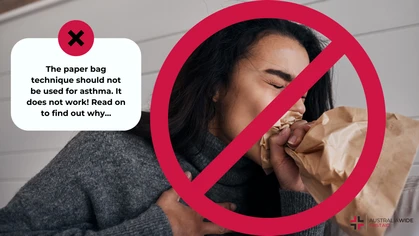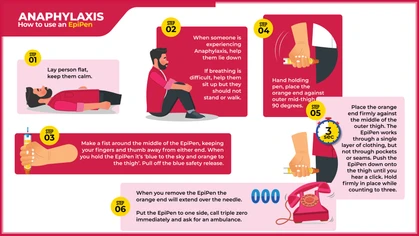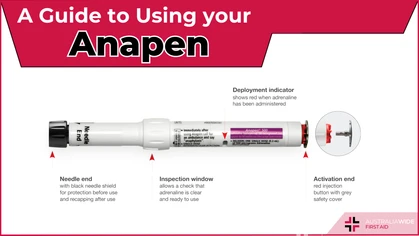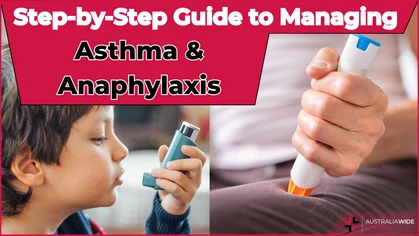Asthma and Pregnancy

Allergy and Asthma
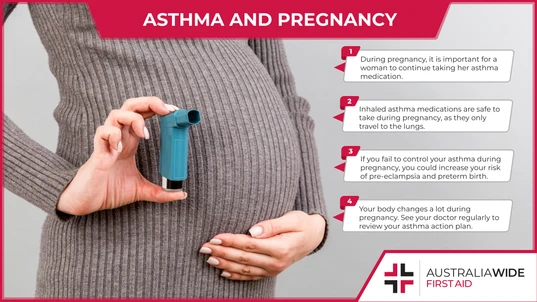
During pregnancy, it is important for women to continue taking their asthma medication. Though some women feel uneasy about continuing their asthma medication during pregnancy, asthma attacks can put unborn babies at risk.
During pregnancy it is important that a woman continues to take her asthma medication. Some people feel uneasy about using asthma medication while pregnant , however, failing to maintain asthma control during pregnancy can put an unborn baby at risk. Maintaining effective asthma control during pregnancy is important for the health of both mother and baby. If you are asthmatic and you become pregnant there are four things you should remember:- Your asthma and pregnancy may interact
- Good asthma control is important
- Your asthma should be regularly reviewed
- Many asthma medications have a good safety profile and should be continued during pregnancy.
Your asthma may change
When a woman is pregnant her body will go through many changes. A woman’s asthma may also change during pregnancy. In some cases it may become more severe, for others it may improve, while some women don’t experience any changes. For this reason, it is important that a woman sees her doctor to review her asthma action plan at different stages in the pregnancy.Is asthma medication safe during pregnancy?
Most asthma medication is safe during pregnancy. While there is some evidence that suggests oral corticosteroids can pose a slight risk to the baby, inhaled asthma medications only travel to the lungs rather than the whole body, which makes them very safe during pregnancy. It is much safer for a pregnant woman to manage her asthma with appropriate medications than for her to stop controlling her asthma and experience symptoms and exacerbations. If you become pregnant you should check with your doctor to ensure you are using the appropriate medication.What are the risks of not using medication?
If you fail to control your asthma well during pregnancy, and have an asthma attack, you increase the risk of:- Pre-eclampsia
- Preterm birth
- Low birth weight
- Perinatal mortality.
Will I have an asthma attack when I go into labour?
It is very unlikely that you will experience an asthma attack during labour. The risk of an asthma attack during birth is extremely rare except in the most severe cases. To be on the safe side you should make sure you have access to your asthma medication at all times, including when you are in hospital. If you do experience asthma symptoms during labour, you should use your reliever medication as you normally would. Information sourced from National Asthma Council Australia and Better Health Channel. For more information on how to prevent, identify, and manage symptoms of an asthma attack, check out our Resource Library or book a first aid course near you.
Originally published at
https://www.australiawidefirstaid.com.au/resources/asthma-pregnancy
as part of the Australia Wide First Aid Articles Library




